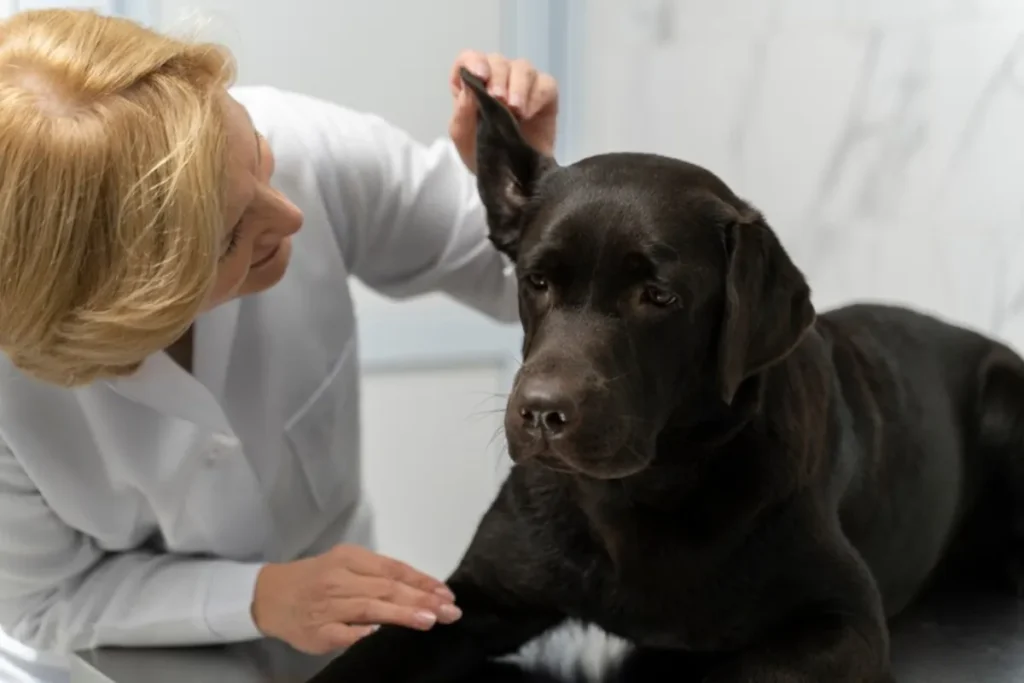As cherished members of our families, dogs bring joy, companionship, and unconditional love into our lives.
However, along with the joys of pet ownership come responsibilities, including ensuring their health and well-being.
One significant aspect of pet care that many dog owners may not fully anticipate is the potential for substantial medical expenses.
From routine veterinary visits to unexpected emergencies and chronic conditions, the cost of medical care for dogs can vary widely.
In this article, we will explore which dogs tend to have the most expensive medical bills, factors contributing to these costs, and strategies for pet owners to manage and prepare for these financial challenges.
Factors Affecting Medical Costs for Dogs
Before delving into specific breeds, it’s essential to understand the factors that can contribute to higher veterinary expenses:
Breed Predispositions:
Certain dog breeds are genetically predisposed to specific health conditions or ailments.
These conditions may require ongoing management, specialized treatments, or surgeries, all of which can add to medical expenses.
Size and Weight:
Larger dogs generally have higher medical costs than smaller breeds.
This is partly due to the increased dosage of medications, higher anesthesia requirements for surgeries, and the potential for orthopedic issues.
Age:
Older dogs may develop age-related conditions such as arthritis, dental disease, or organ dysfunction, necessitating more frequent vet visits and ongoing treatments.
Geographic Location:
The cost of veterinary care can vary significantly depending on where you live.
Urban areas and regions with higher costs of living typically have more expensive veterinary services.
Preventative Care:
Regular vaccinations, parasite control, dental cleanings, and wellness exams are crucial for maintaining your dog’s health and catching potential issues early, thus preventing more costly treatments later on.
Breeds with Higher Medical Expenses

While every dog is unique and individual health outcomes can vary, certain breeds are known for having higher average medical costs due to their predispositions to specific health conditions.
Here are some examples:
Bulldogs (English and French):
Common Health Issues:
Bulldogs are prone to respiratory problems due to their brachycephalic (short-nosed) anatomy, including issues like brachycephalic obstructive airway syndrome (BOAS).
They may also experience skin fold dermatitis, joint issues, and reproductive challenges that require veterinary intervention.
Cost Considerations:
Surgery to correct breathing difficulties, skin treatments, and joint care can contribute to higher medical bills.
Great Danes:
Common Health Issues:
Great Danes are giant breeds prone to musculoskeletal issues such as hip dysplasia and osteosarcoma (bone cancer).
They also have a higher risk of bloat (gastric dilatation and volvulus) due to their deep chests.
Cost Considerations:
Treatment for orthopedic conditions, cancer care, and emergency bloat surgery can be expensive.
Golden Retrievers:
Common Health Issues:
Golden Retrievers are susceptible to genetic conditions such as hip dysplasia, elbow dysplasia, and certain types of cancer, including lymphoma.
Cost Considerations:
Diagnostic tests, surgeries, chemotherapy, and long-term management of cancer can contribute to higher veterinary expenses.
German Shepherds:
Common Health Issues:
German Shepherds are prone to hip dysplasia, degenerative myelopathy, and digestive issues such as exocrine pancreatic insufficiency (EPI).
Cost Considerations:
Orthopedic surgeries, neurological evaluations, and enzyme replacement therapy for EPI can be costly.
Dachshunds:
Common Health Issues:
Dachshunds are susceptible to intervertebral disc disease (IVDD) due to their long spinal structure.
They may also experience dental issues and obesity-related conditions.
Cost Considerations:
IVDD surgery, dental cleanings, and treatments for obesity-related health problems can contribute to veterinary bills.
Managing and Budgeting for Dog Medical Expenses
Given the potential for high veterinary costs, proactive planning and financial preparedness are essential for dog owners.
Here are some strategies to help manage and budget for medical expenses:
Pet Insurance:
Consider investing in pet insurance to help cover unexpected medical costs.
Pet insurance plans can vary widely in coverage options, deductibles, and premiums, so research different providers to find the best fit for your dog’s needs.
Emergency Fund:
Establish an emergency fund specifically for your dog’s medical expenses.
Set aside a portion of your monthly budget to contribute to this fund, ensuring that you have funds available in case of unexpected veterinary emergencies.
Routine Preventative Care:
Schedule regular veterinary check-ups and follow recommended preventative care protocols.
Early detection of health issues can often lead to less costly treatments and better outcomes for your dog.
Comparison Shop for Veterinary Services:
Research veterinary clinics in your area and compare prices for routine services, surgeries, and specialty care.
Some clinics may offer payment plans or discounts for certain procedures.
Nutrition and Exercise:
Maintain a balanced diet and appropriate exercise regimen for your dog to promote overall health and reduce the risk of obesity-related health problems.
Educate Yourself:
Stay informed about common health issues affecting your dog’s breed(s) and learn to recognize early warning signs of potential health problems.
Early intervention can help minimize the severity of illnesses and associated costs.
The Role of Responsible Breeding and Adoption
Responsible breeding practices play a crucial role in reducing the incidence of genetic health conditions in dogs.
When choosing a breed, research reputable breeders who prioritize health testing and breed for genetic diversity.
Alternatively, consider adopting a dog from a shelter or rescue organization, where you can provide a loving home to a dog in need.
Conclusion
While dogs bring immeasurable joy and companionship to our lives, it’s essential to be prepared for the financial responsibilities of pet ownership, including potential medical expenses.
Certain breeds are more prone to specific health conditions, which can result in higher veterinary costs over their lifetimes.
By understanding these factors, budgeting for preventative care, and considering financial safeguards like pet insurance, you can better manage and prepare for your dog’s medical needs.
Ultimately, ensuring your dog’s health and well-being is a testament to the love and commitment we have for our loyal canine companions.